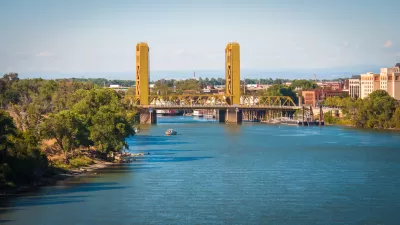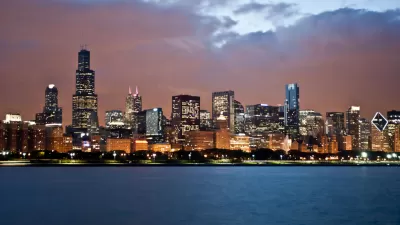A team of Brookings Institution researchers present five key findings about Americans and how the country grew in 2011 according to 2010 Census data.
A cascade of statistics from the 2010 Census and other Census Bureau sources released during 2011 show a nation in flux-growing and moving more slowly as it ages, infused by racial and ethnic minorities and immigrants in its younger ranks, and struggling economically across a decade bookended by two recessions. The nation's largest metropolitan areas, and especially their suburbs, stood on the front lines of America's evolving demographic transformation.
Finding II details how Americans are "increasingly stuck at home":
"The migration slowdown reversed in part the tide that swept many Americans into Sun Belt areas like Las Vegas and Orlando during the first half of the decade. One upshot is that population losses from many former "feeder" areas, such as New York, Los Angeles, and Boston have slowed considerably, especially among migrants with college degrees. Meanwhile, Austin, Dallas, and Denver displaced Riverside, Phoenix, and Atlanta from the list of metro areas gaining the most young migrants at the end of the decade."
FULL STORY: Five Things the Census Revealed About America in 2011

Maui's Vacation Rental Debate Turns Ugly
Verbal attacks, misinformation campaigns and fistfights plague a high-stakes debate to convert thousands of vacation rentals into long-term housing.

Planetizen Federal Action Tracker
A weekly monitor of how Trump’s orders and actions are impacting planners and planning in America.

In Urban Planning, AI Prompting Could be the New Design Thinking
Creativity has long been key to great urban design. What if we see AI as our new creative partner?

King County Supportive Housing Program Offers Hope for Unhoused Residents
The county is taking a ‘Housing First’ approach that prioritizes getting people into housing, then offering wraparound supportive services.

Researchers Use AI to Get Clearer Picture of US Housing
Analysts are using artificial intelligence to supercharge their research by allowing them to comb through data faster. Though these AI tools can be error prone, they save time and housing researchers are optimistic about the future.

Making Shared Micromobility More Inclusive
Cities and shared mobility system operators can do more to include people with disabilities in planning and operations, per a new report.
Urban Design for Planners 1: Software Tools
This six-course series explores essential urban design concepts using open source software and equips planners with the tools they need to participate fully in the urban design process.
Planning for Universal Design
Learn the tools for implementing Universal Design in planning regulations.
planning NEXT
Appalachian Highlands Housing Partners
Mpact (founded as Rail~Volution)
City of Camden Redevelopment Agency
City of Astoria
City of Portland
City of Laramie




























